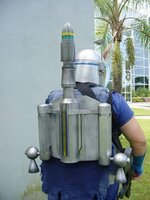- Messages
- 255
- Reactions
- 145
This is something that really interests me since I live in Beaverton but work on the east side. My company brought in a geologist that works for the state to talk about the earthquake zone and what we should expect. They believe that if there is a subduction zone earthquake that all the bridges in the Portland area will fail. He believed that a few would still be standing but might pull back from the road and make them impassable by vehicles. My thoughts are most likely that I would grab my bag and then hoof it over the bridge and then hike home. If all the bridges come down then I am paying a boater to take me across or commandeer the sub at OMSI












